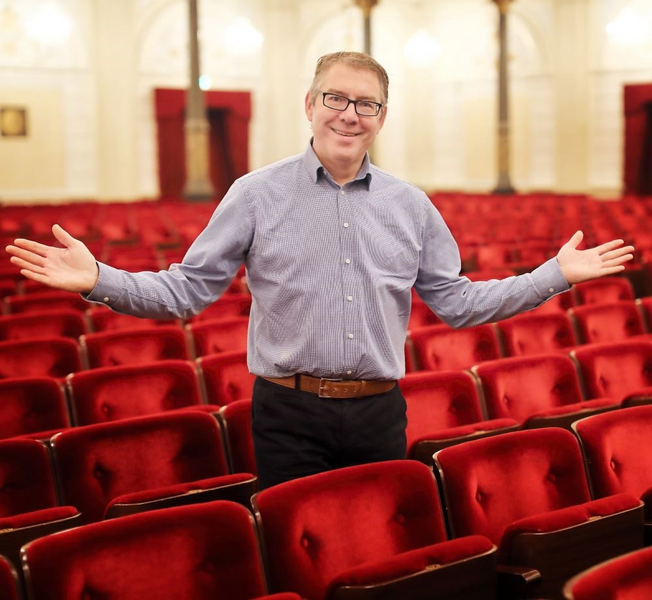ATD Blog
"Empower Brilliant Brains to Bloom"
Published Wed Mar 04 2020


The worldwide talent development community is diverse. Our members bring a wealth of experience and insight to their work. We're spotlighting their stories.
Hans de Graaf has been a member of ATD since 2015 from The Netherlands. Here's his story in his own words.
Tell us a little bit about yourself.
I am a father of two sons and a daughter, and a grandfather of four beautiful girls and a boy. My wife, Janita, and I will celebrate 30 years of marriage in July.
I live in Assen (the Netherlands). My office is just a five-minute bike ride away. From there, I serve customers around the world via online media.
I was born in 1966 in a little town in the middle of the Netherlands. I studied analytical chemistry at Utrecht University.
My first jobs were in the pharmaceutical industry. I started as a sales rep. After a few years, I was promoted to head of the purchasing department.
In 1995, I started my first official company. Since then, I have started, sold, and closed several companies. See my LinkedIn profile for a complete list of my work journey.
As an entrepreneur, I fell into the trap that when you become successful and get people working for you, you become a manager. For me, that meant that my day was filled with things I didn't like and things I wasn't good at. Unfortunately, this also influenced the atmosphere within my family.
2015 was a significant turning point. After almost burning out, I decided to sell all my companies and start from scratch. The result is the project I am working on right now: the Brainfulness Institute.
What are your personal and professional goals?
My goal in life is to empower brilliant brains to bloom.
Your brain does not come with a user manual, so how can you live with and use your brain in the best possible way?
My answer to that is brainfulness. Brainfulness is the rational counterpart to mindfulness. It teaches you how to use all your brain's features and not only the ones that are triggered by the environment your brain is in.
Because brainfulness is so rational, it is specifically targeted to people who are not attracted to mindfulness and other forms of meditation.
What challenges have you overcome throughout your career?
Sometimes I introduce myself as a former VIP—very indecisive person. I am a typical maximizer. Maximizers take long to decide. And even after the decision, they are not satisfied. They keep researching to find proof that they've made the best decision possible.
Research shows that maximizers make better decisions but at two high costs: time and happiness.
Because of this mental handicap, I started to study decision making and the role of the human brain.
This quest helped me to find practical ways to mitigate my natural tendency to maximize.
One example: I minimized the number of my decisions to make some decisions for the rest of my life. On stage, you will always find me wearing the same brand of shoes (brown or black), size 43, width H. Instead of spending one or two days buying shoes, it has now become a no-brainer.
What’s the most valuable thing you’ve gained or experienced during your membership with ATD?
I've learned never to overestimate people's knowledge. The solution that I've found to work for me is never to assume but always ask relevant questions.
Learning how to ask good questions is still a work in progress for me. I believe that the master will always be a student. I'll always be a student in questioning, that's for sure.
Can you share any professional tips, specific to talent development, that you have picked up along the way?
Don't expect people to remember what you say or try to teach them in an e-learning course. There are many things you can do to improve retention. The one thing that people forget too often is to repeat the message. If you don't repeat several times, people will forget most of it. This phenomenon is known by the name “The Ebbinghaus Forgetting Curve.”
At ATD’s International Conference & EXPO in 2016, I spoke about this topic. As an ATD member, you can watch the video of my presentation here.
What’s a common misconception you see when it comes to talent development?
I see that many brain myths are still educated and used.
For example, the myth that humans have an attention span less than a goldfish. Please search in Google for “attention span goldfish myth.”
Human brains like simple stories, and they like the accompanying conclusions. But simple is not the same as truthful.
Suggestion: Order a book about learning myths—for example, Millennials, Goldfish & Other Training Misconceptions. You can order it on the ATD website.
Do you have any advice for people looking to further their careers?
Never see your career separate (or even opposite) of your purpose. Having a purpose in life gives you not only a direction in the long-term helps you to make purposeful decisions on a day-to-day basis.
Do you want to have a purposeful career and be happy too? Then you'll need a purpose where you serve people. A people-serving purpose will give you meaning. And making progress on your purpose will give you moments of happiness.
What is your personal definition of talent development?
Talent development = brain development.
Every brain is wired differently. That is why a one-size-fits-all approach is rarely successful. The challenge in talent development is to develop every brain within your organization.
How do you stay motivated?
I evaluate my behaviors in relation to my most valuable values every day. Where did I trust my autopilot too much and showed behaviors that are not in line with my values or purpose?
For me, it turned out to be a practical solution to have my priorities almost always top of mind. They guide me in personal and business decision making. Besides, I track progress on my purpose regularly. Seeing progress on my purpose is the best motivator for me to keep going.
How do you find meaning in your work?
By serving people. I think that I have an important message to share that can help many people around the world. That fuels my battery and gives me the energy to not only work hard but also to be resilient when things don't go as planned.
I strongly feel that brainfulness is my legacy, my gift to the world. It is my wish that even after my time on this earth has ended, people will perform better and be happier because of the simple brainfulness principles and practices.
Have your own story to tell? Share it with us.
You've Reached ATD Member-only Content
Become an ATD member to continue
Already a member?Sign In
